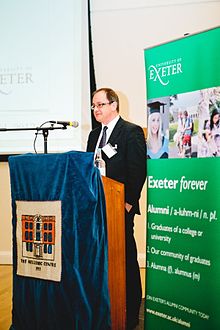
The Liberal Party was one of the two major political parties in the United Kingdom, along with the Conservative Party, in the 19th and early 20th centuries. Beginning as an alliance of Whigs, free trade–supporting Peelites, and reformist Radicals in the 1850s, by the end of the 19th century, it had formed four governments under William Gladstone. Despite being divided over the issue of Irish Home Rule, the party returned to government in 1905 and won a landslide victory in the 1906 general election.
The Zinoviev letter was a fake document published and sensationalised by the British Daily Mail newspaper four days before the 1924 United Kingdom general election, which was held on 29 October. The letter purported to be a directive from Grigory Zinoviev, the head of the Communist International (Comintern) in Moscow, to the Communist Party of Great Britain (CPGB), ordering it to engage in seditious activities. It stated that the normalisation of British–Soviet relations under a Labour Party government would radicalise the British working class and put the CPGB in a favourable position to pursue a Bolshevik-style revolution. It further suggested that these effects would extend throughout the British Empire. The right-wing press depicted the letter as a grave foreign subversion of British politics and blamed the incumbent Labour government under Ramsay MacDonald for promoting the policy of political reconciliation and open trade with the Soviet Union on which the scheme appeared to depend. The election resulted in the fall of the first Labour government and a strong victory for the Conservative Party and the continued collapse of the Liberal Party. Labour supporters often blamed the letter, at least in part, for their party's defeat.

The Independent Labour Party (ILP) was a British political party of the left, established in 1893 at a conference in Bradford, after local and national dissatisfaction with the Liberals' apparent reluctance to endorse working-class candidates, representing the interests of the majority. A sitting independent MP and prominent union organiser, Keir Hardie, became its first chairman.
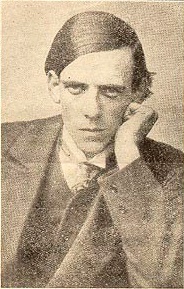
James Maxton was a British left-wing politician, and leader of the Independent Labour Party. He was a pacifist who opposed both world wars. A prominent proponent of Home Rule for Scotland, he is remembered as one of the leading figures of the Red Clydeside era. He broke with Ramsay MacDonald and the second minority Labour government, and became one of its most bitter critics. As the leader of the Independent Labour Party (ILP), he disaffiliated the ILP from the mainstream party in 1932. Afterwards, he became an independent dissident outside front-line politics.

Philip Snowden, 1st Viscount Snowden, PC was a British politician. A strong speaker, he became popular in trade union circles for his denunciation of capitalism as unethical and his promise of a socialist utopia. He was the first Labour Chancellor of the Exchequer, a position he held in 1924 and again between 1929 and 1931. He broke with Labour policy in 1931, and was expelled from the party and excoriated as a turncoat, as the party was overwhelmingly crushed that year by the National Government coalition that Snowden supported. He was succeeded as Chancellor by Neville Chamberlain.
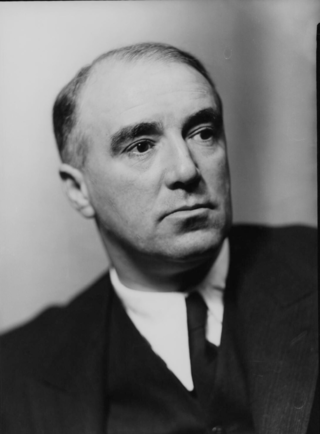
Harry Pollitt was a British communist who served as the General Secretary of the Communist Party of Great Britain (CPGB) from July 1929 to September 1939 and again from 1941 until his death in 1960. Pollitt spent most of his life advocating communism. Ideologically a Marxist–Leninist, Pollitt was an adherent particularly of Joseph Stalin even after Stalin's death and disavowal by Nikita Khrushchev. Pollitt's acts included opposition to the Allied intervention in the Russian Civil War and Polish–Soviet War, support for the Spanish Republicans during the Spanish Civil War, both support and opposition to the war against Nazi Germany, defence of the communist coup in Czechoslovakia, and support for the 1956 Soviet invasion of Hungary.

Shapurji Dorabji Saklatvala was a communist activist and British politician of Indian Parsi heritage. Saklatvala is notable for being the first person of Indian heritage to become a British Member of Parliament (MP) for the UK Labour Party, and was also among the few members of the Communist Party of Great Britain (CPGB) to serve as an MP.
Stuart Forbes Macintyre was an Australian historian, and Dean of the Faculty of Arts at the University of Melbourne from 1999 to 2008. He was voted one of Australia's most influential historians.
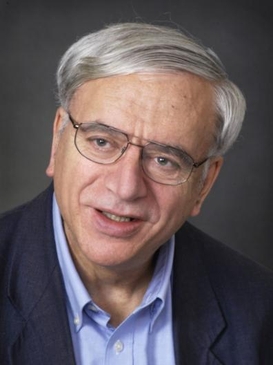
Paul Addison was a British historian known for his research on the political history of Britain during the Second World War and the post-war period. Addison was part of the first generation of academic historians to study the conflict and is most notable for The Road to 1945 (1975) which traced the origins of the post-war consensus into the wartime period.
Richard John Toye is a British historian and academic. He is Professor of History at the University of Exeter. He was previously a Fellow and Director of Studies for History at Homerton College, University of Cambridge, from 2002 to 2007, and before that he taught at University of Manchester from 2000.
Frank McDonough is a British historian of the Third Reich and international history.

Edward Palmer Thompson was an English historian, writer, socialist and peace campaigner. He is best known today for his historical work on the radical movements in the late 18th and early 19th centuries, in particular The Making of the English Working Class (1963).
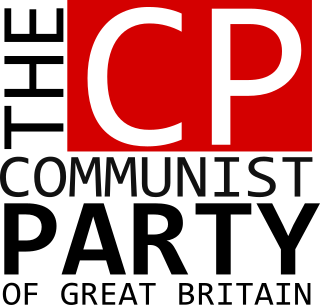
The Communist Party of Great Britain (CPGB) was the largest communist organisation in Britain and was founded in 1920 through a merger of several smaller Marxist groups. Many miners joined the CPGB in the 1926 general strike. In 1930, the CPGB founded the Daily Worker. In 1936, members of the party were present at the Battle of Cable Street, helping organise resistance against the British Union of Fascists. In the Spanish Civil War the CPGB worked with the USSR to create the British Battalion of the International Brigades, which party activist Bill Alexander commanded.
Andrew Stuart Thompson is a British historian and academic. He specialises in modern British history, Imperialism, and the British Empire. Since September 2019, he has been Professor of Global Imperial History at the University of Oxford and a Professorial Fellow at Nuffield College, Oxford. He previously taught at the University of Leeds and the University of Exeter. He was Executive Chair of the Arts and Humanities Research Council (AHRC) from 2018 to 2020, having previously been its chief executive on a part-time basis.
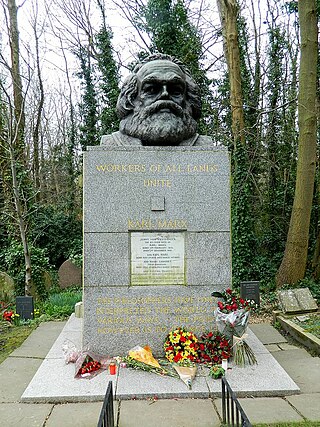
Far-left politics in the United Kingdom have existed since at least the 1840s, with the formation of various organisations following ideologies such as Marxism, revolutionary socialism, communism, anarchism and syndicalism.

David Adetayo Olusoga is a British historian, writer, broadcaster, presenter and film-maker. He is Professor of Public History at the University of Manchester. He has presented historical documentaries on the BBC and contributed to The One Show and The Guardian.
Stuart Ryan Ball, CBE, FRHistS, is a political historian who retired in 2016 as professor of Modern British History at the University of Leicester, having taught there for 37 years; he is now emeritus professor of Modern History there. He specialises in the history of the Conservative Party.
Martin Francis is a British-American academic historian. He was Henry R. Winkler Professor of Modern History at the University of Cincinnati from 2003 to 2015, when he was appointed Professor of War and History at the University of Sussex.

When Britain emerged victorious from the Second World War, the Labour Party under Clement Attlee came to power and created a comprehensive welfare state, with the establishment of the National Health Service giving free healthcare to all British citizens, and other reforms to benefits. The Bank of England, railways, heavy industry, and coal mining were all nationalised. The most controversial issue was nationalisation of steel, which was profitable unlike the others. Economic recovery was slow, housing was in short supply, bread was rationed along with many necessities in short supply. It was an "age of austerity". American loans and Marshall Plan grants kept the economy afloat. India, Pakistan, Burma and Ceylon gained independence. Britain was a strong anti-Soviet factor in the Cold War and helped found NATO in 1949. Many historians describe this era as the "post-war consensus" emphasising how both the Labour and Conservative parties until the 1970s tolerated or encouraged nationalisation, strong trade unions, heavy regulation, high taxes, and a generous welfare state.
Jonathan Mark Lawrence, FRHistS is a British historian. Since 2019, he has been Professor of Modern British History at the University of Exeter.
